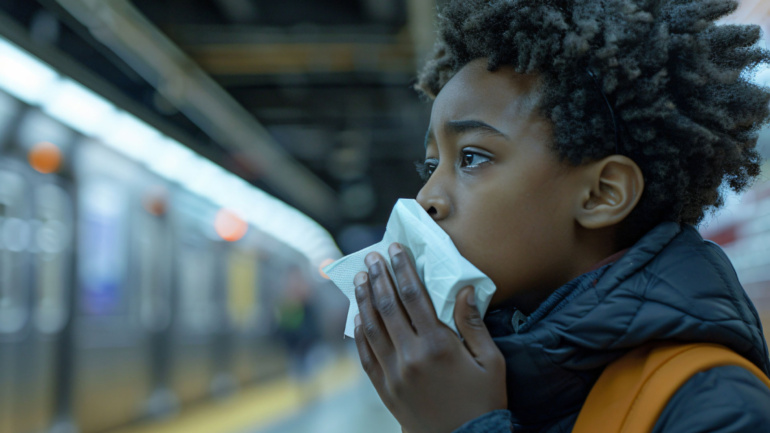Health Remains a Persistent Barrier to Development
Africa is the world’s youngest continent, with over 60 percent of its population under the age of 25. Young people are increasingly seen as central to progress in health, education, technology, and governance.
Across the continent, weak health systems, limited access to care, and recurring disease outbreaks continue to slow down development. Health remains both a risk and an opportunity.
Addressing these gaps will require practical, community-based solutions. This is where young people are already making a difference. Active, adaptable, and deeply rooted in their communities, youth are helping raise awareness, promote healthy habits, and reach groups often missed by traditional health systems. Their involvement brings fresh energy and grassroots leadership.
Youth Stepping Up in Community Health
One area where their role is especially critical is malaria control. Despite being both preventable and treatable, malaria remains one of Africa’s most serious health threats. The continent still accounts for about 95 percent of global malaria cases and deaths, with young children and pregnant women most affected.
The disease continues to keep children out of school, strain family incomes, and overload local health services. Many young people have grown up seeing these effects firsthand, whether on their siblings, their neighbours or themselves, and this is why more of them are stepping up to be part of the response.
This momentum is already visible in several countries, where young people are playing a leading role in malaria prevention efforts. Across East Africa, national Malaria Youth Corps have been established in the Democratic Republic of Congo, Kenya, South Sudan, and Uganda to mobilise communities, support behaviour change campaigns, and work alongside local health officials.
These youth groups are engaging schools and using social media to raise awareness about malaria prevention. Tanzania is now preparing to launch its own Malaria Youth Corps, aligning with this year’s World Malaria Day, which focuses on the theme: “Malaria Ends With Us: Reinvest, Reimagine, Reignite.”
“In Uganda, young women are leading scorecard reviews and helping communities identify what’s really preventing girls from accessing malaria services. This project is helping us speak with confidence, and it’s helping decision-makers listen differently,”
Namuddu Hilder, Team Co-Lead – Malaria Youth Champions, Uganda.
Beyond East Africa, similar youth-led initiatives have been launched in Benin, Burkina Faso, Cameroon, Eswatini, Ghana, Guinea, Liberia, Malawi, Mozambique, Namibia, Nigeria and Zambia. These national Malaria Youth Corps
HEALTH
Scientists find that dewormin g can help to reduce HIV infections
are working closely with their respective national malaria control programmes, engaging in community outreach, education, and advocacy to combat malaria effectively.
Confronting Gender Barriers in Malaria Response
While this growing youth movement is making a real impact, several challenges still stand in the way of broader progress. Among these are longstanding gender-related barriers. In many communities, adolescent girls and young women face added obstacles when it comes to protecting themselves from malaria. These include limited access to information, cultural norms that restrict decision-making, and structural gaps in how services are delivered.
For example, some clinics lack female health workers, making it harder for women and girls to seek care comfortably. Others operate only during hours that conflict with school or domestic responsibilities, limiting access. These kinds of barriers not only increase their risk but also reduce the effectiveness of wider malaria control efforts.
To address these barriers directly, young people in several countries are stepping up through community-driven initiatives supported by the Gender Equality Fund. Funded by the Global Fund to Fight AIDS, Tuberculosis and Malaria, in partnership with GSK and ViiV Healthcare, the Gender Equity Fund backs youth-led action to advance gender equality in health.
Most recently, national Malaria Youth Corps in six countries—the Democratic Republic of
Congo, Eswatini, Mozambique, Nigeria, Uganda, and Zambia—have begun implementing targeted Gender Equality Fund-supported initiatives.
With technical support from the African Leaders Malaria Alliance, these youth corps are leading advocacy efforts, facilitating community dialogues, and using scorecard tools to identify local barriers and push for more inclusive malaria, neglected tropical disease and health responses.
The youth-led initiatives under the Gender Equality Fund are already taking shape. In Uganda, Malaria Youth Champions are using scorecards to assess gender-related barriers and lead community discussions that inform local solutions.
In Mozambique, Zambia, Eswatini, Nigeria, and the Democratic Republic of Congo, young women are driving awareness campaigns and facilitating dialogues to ensure malaria prevention messages effectively reach women and adolescent girls.
These efforts are not only deepening community engagement but also helping to bridge the gap between local realities and national policies. Female youth leaders will present findings to ministries of health, parliaments, and End Malaria Councils to advocate for more inclusive policies and resource allocation.

Malaria may be the starting point, but the lessons and leadership emerging from these efforts can be applied across many areas of
health, and even beyond, into the wider development agenda. Supporting youth in this way lays the foundation for more inclusive, resilient development across the continent.



